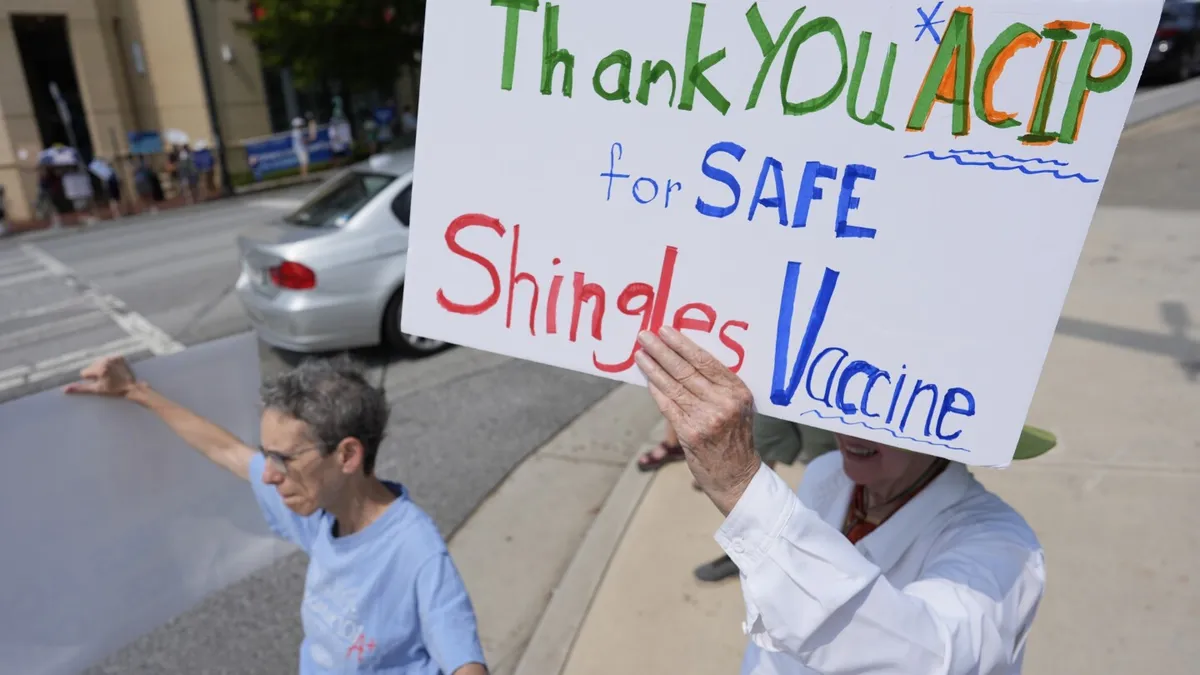
This week, the newly formed vaccine advisory committee led by Health Secretary Robert F. Kennedy Jr. will convene to discuss critical vaccination recommendations. The committee is expected to vote on potential changes regarding vaccines for COVID-19, hepatitis B, and chickenpox, with significant implications for public health. While the specific agenda for the meetings on Thursday and Friday in Atlanta remains unclear, the implications of these votes are already raising concerns among public health experts.
Officials from the Department of Health and Human Services (HHS) have not yet provided clarity on the details of the upcoming votes, despite announcing five new appointments to the advisory committee. Experts in public health are apprehensive that any changes to vaccine recommendations could lead to increased skepticism about vaccines among parents. A vote that limits government funding for vaccines for low-income families could have particularly dire consequences. “I’m tightening my seat belt,” stated Dr. William Schaffner, a well-known vaccine expert from Vanderbilt University.
The Advisory Committee on Immunization Practices (ACIP) plays a crucial role in shaping vaccination policies in the U.S. by making recommendations to the director of the Centers for Disease Control and Prevention (CDC). Historically, CDC directors have accepted these recommendations, which are widely implemented by healthcare providers and influence vaccination programs nationwide. In a controversial move earlier this year, Kennedy dismissed the entire 17-member panel and replaced it with members who include several vocal anti-vaccine advocates.
One of the primary vaccines on the agenda is the COVID-19 vaccine. Traditionally, the ACIP would reaffirm recommendations for seasonal vaccines during a June meeting. However, during the last meeting in June, the committee did not address recommendations for COVID-19 shots. Kennedy’s decision to remove COVID-19 vaccines from CDC guidelines for healthy children and pregnant women has drawn widespread criticism from medical professionals and public health organizations, leading to a lawsuit from the American Academy of Pediatrics (AAP).
Despite these changes, CDC officials clarified that families could still access the 2024-2025 COVID-19 vaccine for children, with coverage through the federal Vaccines For Children (VFC) program. This program is vital, as it provides vaccinations for approximately half of the children in the U.S. annually. The upcoming committee meeting will address whether this year's COVID-19 vaccines will be recommended and if they will continue to be eligible for VFC funding.
The committee will also discuss recommendations regarding the hepatitis B vaccine. Hepatitis B can lead to severe liver infections and can be transmitted from an infected mother to her newborn, with a high percentage of infected infants developing chronic infections. Since its introduction in the U.S. in 1981, the hepatitis B vaccine has been shown to be 85% to 95% effective in preventing these chronic infections. However, Kennedy's ACIP members have expressed interest in revisiting existing guidelines that recommend administering this vaccine within 24 hours of birth, a move that has raised eyebrows among health experts.
The third vaccine under consideration is the chickenpox vaccine. Previously, chickenpox was a common childhood illness, but vaccination has significantly reduced cases and related deaths since its introduction in 1995. The ACIP had previously recommended a combination vaccine (MMRV) that includes measles, mumps, rubella, and chickenpox. However, since some studies indicated that children receiving the MMRV shot faced a slightly higher risk of vaccine-related side effects, the ACIP adjusted its recommendations in 2009 to allow for either the combination vaccine or separate shots.
Currently, there is no new evidence suggesting that the MMRV vaccine poses safety risks. However, critics argue that the current composition of the ACIP aims to foster distrust in vaccines, as highlighted by Dr. Sean O’Leary of the AAP.
On Monday, HHS announced five new members to the advisory committee, expanding its roster to 12. The new appointees include:
Hillary Blackburn, a pharmacist and podcaster focusing on medication access and affordability. Dr. Evelyn Griffin, an obstetrician and gynecologist from Baton Rouge, Louisiana. Dr. Kirk Milhoan, a pediatric cardiologist who has publicly linked vaccines to increases in cardiovascular disease. Dr. Raymond Pollak, a transplant specialist based in Skokie, Illinois. Catherine Stein, a disease researcher from Case Western Reserve University with ties to anti-vaccine advocacy.As the committee prepares for its meetings, the outcomes could significantly impact vaccination policies and public health in the United States.